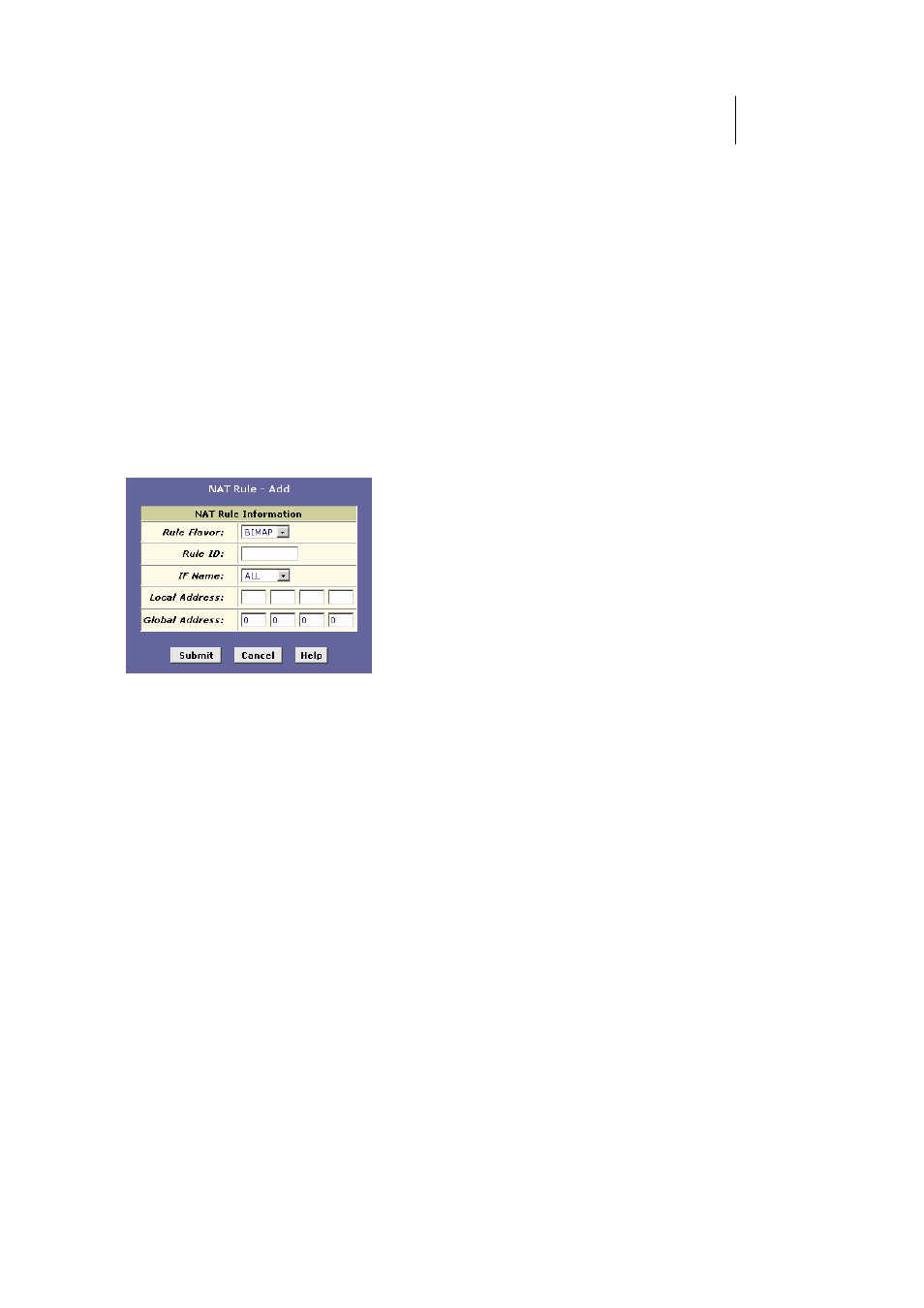ATL Telecom AM30 User Manual
Page 77

ATL Telecom User Guide
AM30
7
7
The Bimap rule: Performing two-way translations
Unlike the other NAT flavors, the Bimap flavor performs address translations in both the
outgoing and incoming directions.
In the incoming direction, when the specified ROUTER interface receives a packet with your
public IP address as the destination address, this address is translated to the private IP
address of a computer on your LAN. To the external computer, it appears as if the access is
being made to the public IP address, when, in fact, it is communicating with a LAN
computer.
In the outgoing direction, the private source IP address in a data packet is translated to the
LAN’s public IP address. To the rest of the Internet, it appears as if the data packet
originated from the public IP address.
Bimap rules can be used to provide external access to a LAN device. They do not provide
the same level of security as RDR rules, because RDR rules also reroute incoming packets
based on the port ID. Bimap rules do not account for the port number, and therefore allow
external access regardless of the destination port type specified in the incoming packet.
Figure 38 shows the fields used to establish a Bimap rule.
Figure 38. NAT Rule – Add Page (Bimap Flavor)
Follow these instructions to add a Bimap rule (see steps 1-4 under "The NAPT rule" on
page 68 for specific instructions corresponding to steps 1 and 2 below):
1.
Display the NAT Rule – Add Page, select BIMAP as the
Rule Flavor, and enter a Rule ID.
2.
Select the interface on which this rule will be effective.
3.
In the Local Address field, type the private IP address of the
computer to which you are granting external access.
4.
In the Global Address field, type the address that you want
to serve as the publicly known address for the LAN
computer.
5.
Follow steps 8-12 under "The NAPT rule" on page 68 to
submit your changes.
The Pass rule: Allowing specific addresses to pass through untranslated
You can create a Pass rule to allow a range of IP addresses to remain untranslated when
another rule would otherwise do so.